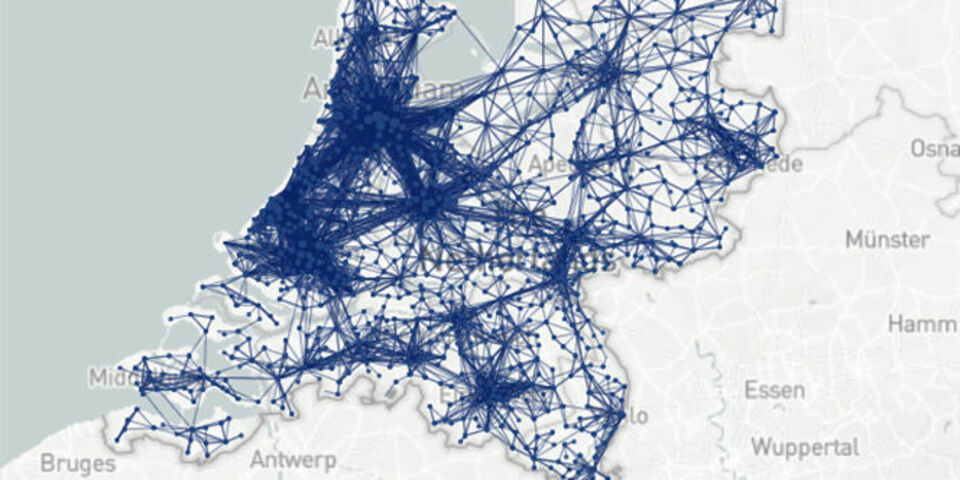Smart dashboard should predict regional outbreaks COVID-19
The first dashboard in the Netherlands that will predict, with great certainty, where local outbreaks of COVID-19 infections may occur. A multidisciplinary research team led by Nelly Litvak, Professor of Algorithms for Complex Networks at TU/e, will work on this dashboard, thanks to a half million-euro grant from ZonMW.
The spread detection of COVID-19 infections is currently lagging behind. For example, a couple of days are easily lost to obtaining test results and finding possible new infections through contact research. In addition, tracing the physical movements of these people is difficult or even impossible due to a lack of time.
The new dashboard can make a big difference in this respect, says project leader Nelly Litvak. “By combining the aggregated mobility patterns with the risky behavior data in the mathematical model of the virus’s spread, we can determine the risks of it spreading from one area to another fairly accurately. This should allow mayors of safety regions to detect a potential local wave of infections and take timely measures - something which is very important now that the virus seems to be taking hold again.”
And there seems to be lots of enthusiasm for the dashboard. The safety regions of Groningen and Twente have already promised to provide the team with feedback right from the start so that the first prototypes can be designed to optimize the user experience from the beginning.
Combining data
The basis for identifying the infections is the COVID Radar app, developed by Leiden University Medical Center (LUMC) and in use since April of this year. With more than 3,5 million completed questionnaires by over 215,000 unique users, this app provides local insights into infectious concentrations. The data is fully anonymized and thus suitable to be shared for information analysis.
This data is then combined with anonymized and aggregated mobility data from the data analytics company Mezuro. This data platform contains information derived from mobile phone usage throughout the Netherlands in the form of residential location, travel destination, duration of travel and mode of transportation (car, train, bicycle, etc.).
The combined data will be the input for IT service provider ilionx, which subsequently visualizes the regional risks in an easy-to-read dashboard. The dashboard will be a map of the Netherlands, divided into municipalities and security regions. It shows the historical and current patterns of infections and movements, and will also visualize a risk assessment of potential sources of infection in the near future.
Dashboard
The team of TU/e, Mezuro, ilionx and UU began in March with their research to predict regional COVID-19 outbreaks based on telephone data. After combining it with the COVID Radar app, they were able to deliver a first prototype in April. The first test version of the dashboard is expected to be ready in three months’ time. During the course of the research, which will take a total of 1.5 years, this dashboard will be further optimized for use by policymakers of safety regions or health authorities.
The research was financed by a 500,000 euro grant from ZonMW. In addition to TU/e and LUMC, which developed the COVID Radar app, the team consists of Utrecht University, the University of Twente, Mezuro, and ilionx. The TU/e team members are Nelly Litvak, Remco van der Hofstad, Marko Boon and Martijn Gösgens.





Discussion